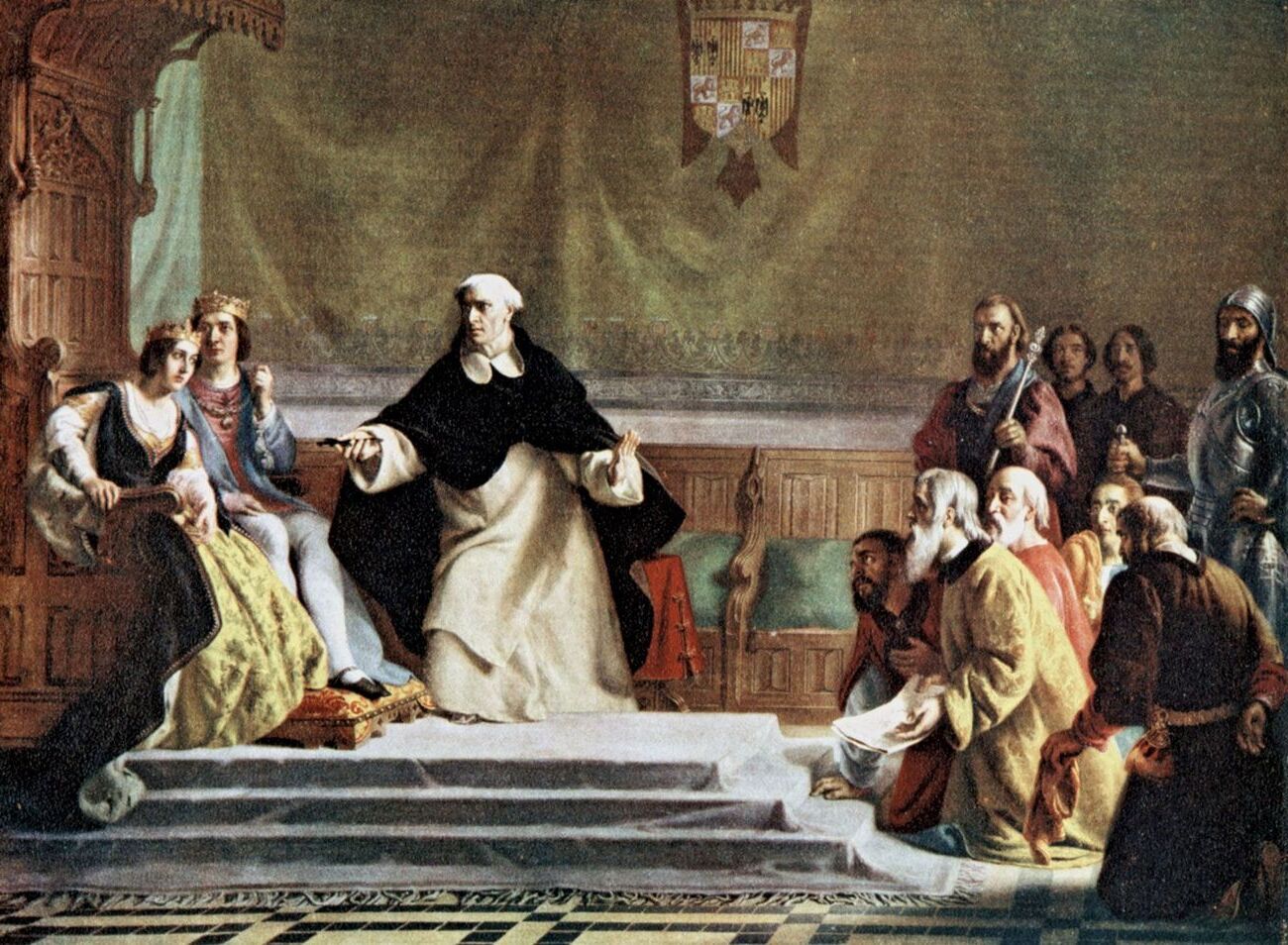
Who was Tomas de Torquemada? Known as the first Grand Inquisitor of Spain, Tomas de Torquemada played a pivotal role in the Spanish Inquisition. Born in 1420, he became a Dominican friar and later, a key figure in enforcing Catholic orthodoxy. His name is often associated with the persecution of Jews and Muslims, as well as the infamous use of torture to extract confessions. Despite his controversial methods, Torquemada's influence shaped Spanish history. This post dives into 35 intriguing facts about his life, shedding light on his actions, motivations, and the lasting impact of his tenure. Ready to learn more? Let's get started!
Key Takeaways:
- Tomas De Torquemada, a key figure in the Spanish Inquisition, used harsh methods to maintain Catholic orthodoxy, leading to the execution of thousands and the expulsion of Jews from Spain.
- Despite his controversial legacy, Torquemada's life continues to captivate public imagination, inspiring various cultural depictions and sparking ongoing debate about his impact on Spanish history.
Early Life and Background
Tomas De Torquemada, a name synonymous with the Spanish Inquisition, had a life filled with significant events and milestones. Here are some intriguing facts about his early years and background.
- Born in 1420 in Valladolid, Spain, Torquemada came from a family with Jewish ancestry.
- His uncle, Juan de Torquemada, was a cardinal and a prominent theologian.
- Torquemada joined the Dominican Order at a young age, dedicating his life to the Catholic Church.
- He became the prior of the Monastery of Santa Cruz in Segovia, where he gained a reputation for his piety and strict adherence to religious rules.
Rise to Power
Torquemada's influence grew as he climbed the ranks within the church. His rise to power marked a turning point in his life and the history of Spain.
- In 1483, King Ferdinand and Queen Isabella appointed him as the Grand Inquisitor of Spain.
- He was instrumental in establishing the Spanish Inquisition, a powerful institution aimed at maintaining Catholic orthodoxy.
- Torquemada's authority extended across Spain, giving him unprecedented control over religious matters.
- He was known for his unwavering commitment to rooting out heresy, often using harsh methods.
Role in the Spanish Inquisition
Torquemada's role in the Spanish Inquisition is perhaps the most well-known aspect of his life. His actions during this period have left a lasting legacy.
- He established tribunals across Spain to investigate and punish heresy.
- Torquemada's methods included torture to extract confessions from suspected heretics.
- He was responsible for the execution of thousands of people, many of whom were burned at the stake.
- Torquemada's policies led to the expulsion of Jews from Spain in 1492, forcing many to convert to Christianity or flee the country.
- He implemented strict censorship laws, banning books that were deemed heretical or contrary to Catholic teachings.
Personal Beliefs and Practices
Understanding Torquemada's personal beliefs and practices provides insight into his motivations and actions.
- He was a staunch advocate of Catholic orthodoxy, believing that heresy threatened the very fabric of society.
- Torquemada practiced extreme asceticism, often fasting and engaging in self-flagellation.
- He believed that the use of torture was justified if it led to the salvation of souls.
- Torquemada was known for his austere lifestyle, shunning luxury and material wealth.
Legacy and Impact
Torquemada's legacy is complex and controversial. His actions have had a lasting impact on history and continue to be a subject of debate.
- He is often depicted as a symbol of religious intolerance and fanaticism.
- Torquemada's policies contributed to the spread of anti-Semitism in Europe.
- His actions during the Spanish Inquisition have been condemned by many historians and scholars.
- Despite his controversial legacy, some view him as a defender of the Catholic faith.
- Torquemada's life has been the subject of numerous books, films, and other works of art.
Death and Aftermath
The end of Torquemada's life marked the conclusion of a significant chapter in Spanish history. His death and its aftermath are noteworthy.
- Torquemada died in 1498 at the age of 78.
- He was buried in the Monastery of St. Thomas in Ávila, Spain.
- After his death, the Spanish Inquisition continued for several centuries, though it eventually lost much of its power.
- Torquemada's reputation has remained a topic of debate, with some viewing him as a villain and others as a hero.
Interesting Anecdotes
Beyond the well-known facts, there are several interesting anecdotes about Torquemada that shed light on his character and actions.
- It is said that he always carried a crucifix with him, which he believed had miraculous powers.
- Torquemada reportedly had a network of informants who provided him with information about suspected heretics.
- He was known for his intense interrogations, often spending hours questioning suspects.
- Torquemada's strict enforcement of religious laws extended to his own family, with reports suggesting he investigated relatives for heresy.
Cultural Depictions
Torquemada's life and actions have inspired various cultural depictions, reflecting his complex legacy.
- He has been portrayed in numerous films, often as a villainous figure.
- Torquemada appears in Victor Hugo's novel "The Hunchback of Notre-Dame" as a symbol of religious fanaticism.
- His character has been featured in several operas, including "Don Carlo" by Giuseppe Verdi.
- Torquemada's life has been the subject of historical dramas and documentaries, exploring his impact on Spanish history.
- Despite his controversial legacy, Torquemada remains a figure of fascination and intrigue, continuing to captivate the public imagination.
The Legacy of Tomas De Torquemada
Tomas De Torquemada's name evokes strong reactions. Known as the first Grand Inquisitor of Spain, his role in the Spanish Inquisition left a lasting mark on history. Torquemada's actions, driven by a fervent desire to maintain religious purity, led to the persecution of countless individuals. His methods were brutal, often involving torture and execution, which have been widely condemned.
Despite the controversy, Torquemada's influence on Spanish history is undeniable. He played a significant role in shaping the religious and political landscape of his time. His legacy serves as a stark reminder of the dangers of fanaticism and intolerance. Understanding Torquemada's life and actions provides valuable insights into a dark chapter of history, emphasizing the importance of tolerance and human rights in today's world.
Frequently Asked Questions
Was this page helpful?
Our commitment to delivering trustworthy and engaging content is at the heart of what we do. Each fact on our site is contributed by real users like you, bringing a wealth of diverse insights and information. To ensure the highest standards of accuracy and reliability, our dedicated editors meticulously review each submission. This process guarantees that the facts we share are not only fascinating but also credible. Trust in our commitment to quality and authenticity as you explore and learn with us.


